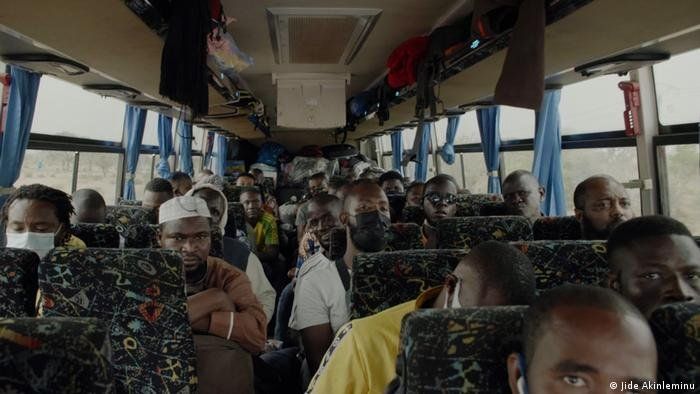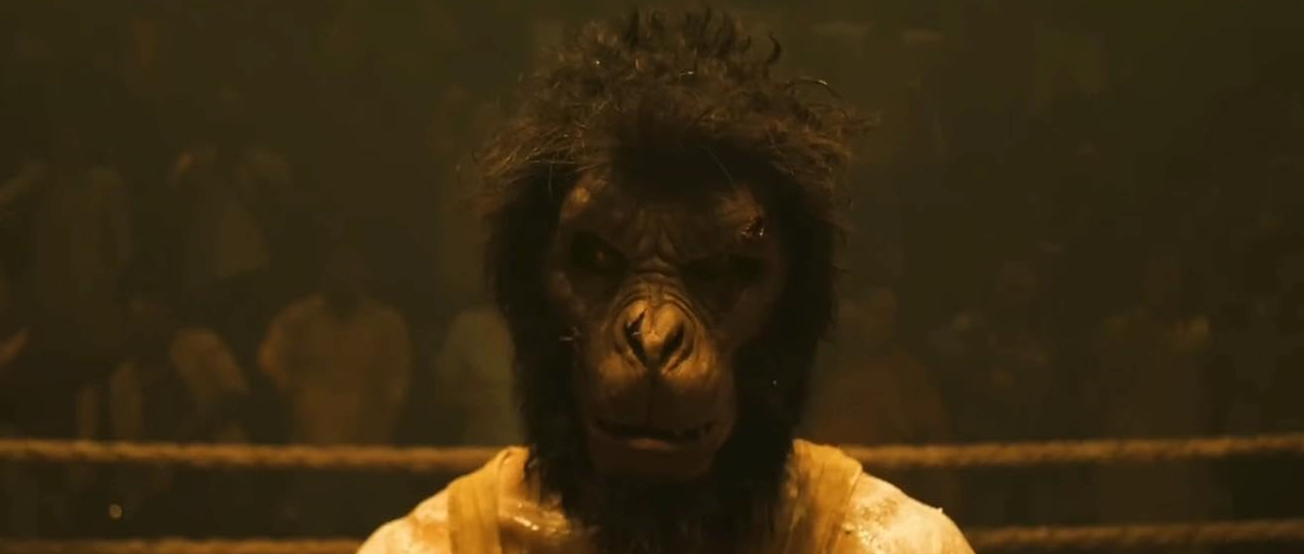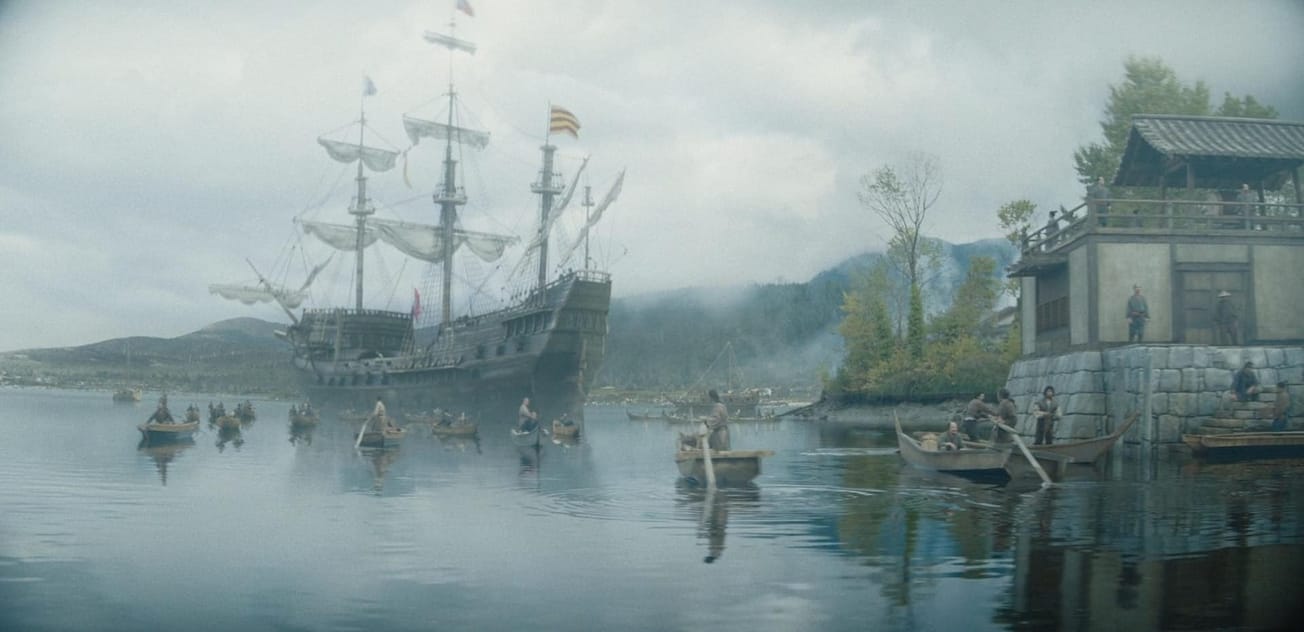By Milan Perera, Arts Critic Columnist
Afrika Eye, the largest event of African cinema and culture in the South West of England, is back for its 16th instalment. The double bill screening of Dear Home Office (2018) and The Last Shelter (2021) marked the return of Afrika Eye to the iconic Stokes Croft-based venue, the Cube Cinema.
In a pervasive atmosphere of incendiary xenophobic rhetoric from those who roam the corridors of power, the timing of these movies could not have arrived at a better time to shed some light on the less talked about aspects of migration.
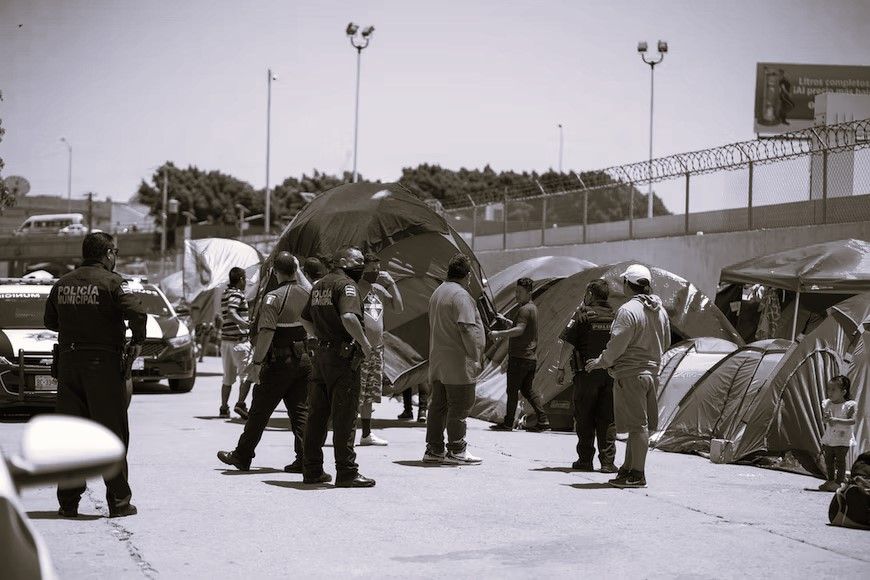
The proceedings commenced with the screening of Dear Home Office (2018), a fruitful collaboration of Migration Mobilities Bristol, the University of Bristol and Bristol Refugee Rights, which reverts the scrutiny back on The Home Office, whose handling of the asylum seekers garnered wide criticism lately.
The film was produced through a series of workshops and conversations with asylum seekers and refugees during the first lockdown in 2020. These conversations were developed into a script in the form of a letter that was then visualised, drawing inspiration from discussions and ideas emerging from the workshops. A distinct feature of this film is the absence of actors or on-screen contributors; instead, the voices of multiple individuals who have been on the receiving end of the Home Office were relayed through a series of monologues.
It was mentioned during the pre-screening introduction that the contributions were received with the understanding of not revealing their identities as some of the cases are still being processed by the Home Office.

The stories are varied as much as the nature of each individual case, but the common denominator is, without a doubt, the defiance with which they address the main culprit, the Home Office. There is no hint of self-pity, but some of the individuals in question have been in immigration limbo for months and ends.
Sometimes the camera focuses on a dripping tap whose monotonous metronomic beat is an extended metaphor for the passing of time, which would no doubt catch up on some of the migrants. The reverse of the gaze is enlightening as the asylum seekers/migrants denounce the denigration, the menacing scrutiny and the complex legal wrangling engineered by the Home Office.
They remind the Home Office that they have had lives before the predicament they are in at the moment. The ultimate insult is using the very same bureaucratic, precise, calculated, jargon-laden language utilised by the Home Office. The movie highlights the human element at the centre of this crisis which is largely ignored by both the authorities and the media.
So proud of everyone for yesterday 🌞🥳🌟@wshed @RefugeeFestBRL @KatieBales2 pic.twitter.com/TWTUW7N7HO
— BristolRefugeeRights (@BristolRefugeeR) June 23, 2022
The much-awaited main event for the evening was the award-winning feature-length documentary, The Last Shelter (2021) by Ousmane Samassékou. The Last Shelter is the second feature-length film of the Malian director whose personal experience of a family member who, in an attempt to reach Germany some 32 years ago, vanished en route.
The movie revolves around a temporary migrant shelter, Caritas Migrant House, on the edge of the Sahel region, which meets the unforgiving terrain of the Sahara Desert in North Africa. The migrant shelter is situated only 200 miles off Timbuktu, a byword in the English language for a place in the middle of nowhere. In reality, this is no misnomer as the searing hot sand beds have buried many who attempted to cross the desert in the hope of reaching the land of hope, Europe.
The migrants arrive at the shelter from the neighbouring Burkina Faso and Benin as a resting place before taking the herculean journey to cross the relentless Sahara Desert to reach the Promised Land of Europe. At times it is obtrusive with its “fly on the wall” approach, where the temporary inhabitants are featured without scripted dialogues or artificial veneer.
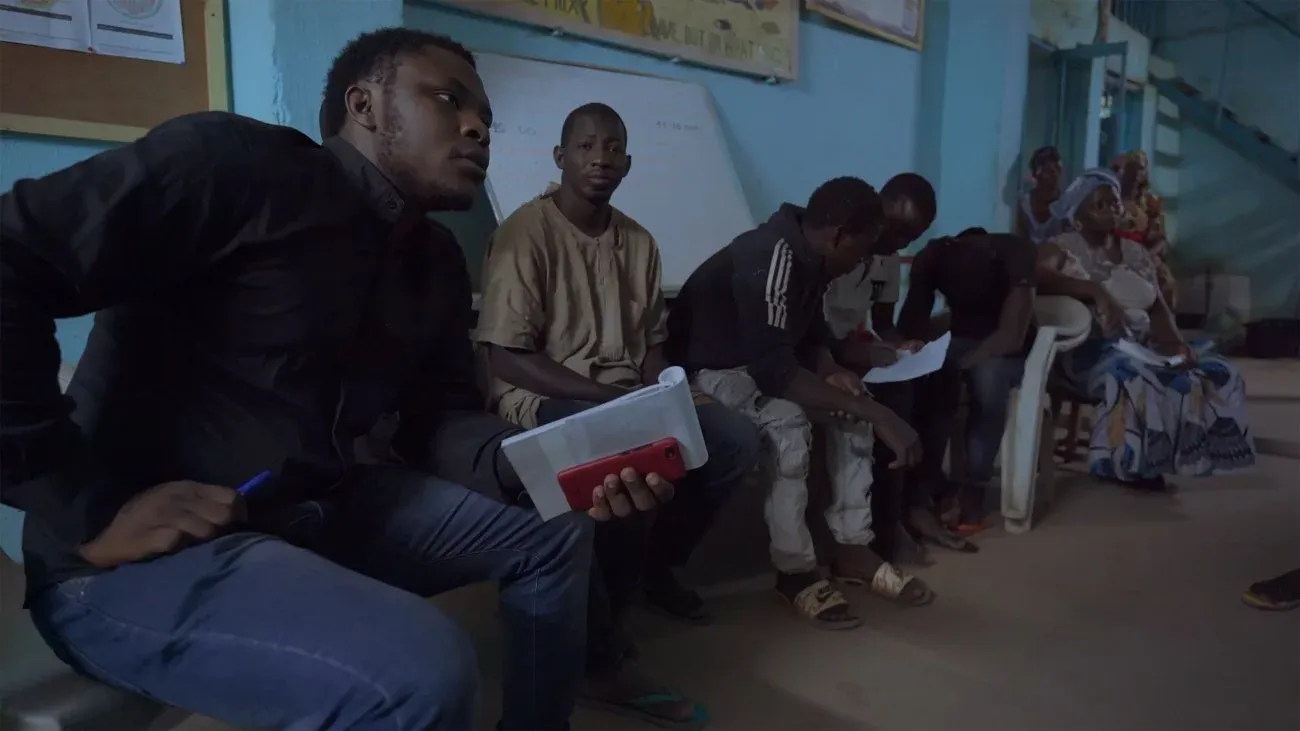
The director shows a great degree of restraint and nuance when he refrains from a blow-by-blow commentary and weaves a geo-political rationale to enumerate issues surrounding migration. Sometimes this ploy backfires as the viewer is somewhat lost without a context of the situation or the individual.
The viewers come to know some of the inhabitants as a result of the conversations among the inhabitants. There is Esther, a 16-year-old girl from Burkina Faso who dreams of going to Algeria with her friend, Kadi. We also meet the middle-aged woman, Natacha, who has been in the shelter for five years. She is mostly quiet, and it feels as though she is holding back a lot, either due to mistrust or fear- in her free time, she plays chess with herself.
The interaction between the two younger women and the middle-aged woman is familial. But when Esther asks Natacha if she feels like a family, she provides an emphatic no, much to the surprise of the former. It was a rare moment when the audience burst out laughing due to Natacha’s deadpan delivery.
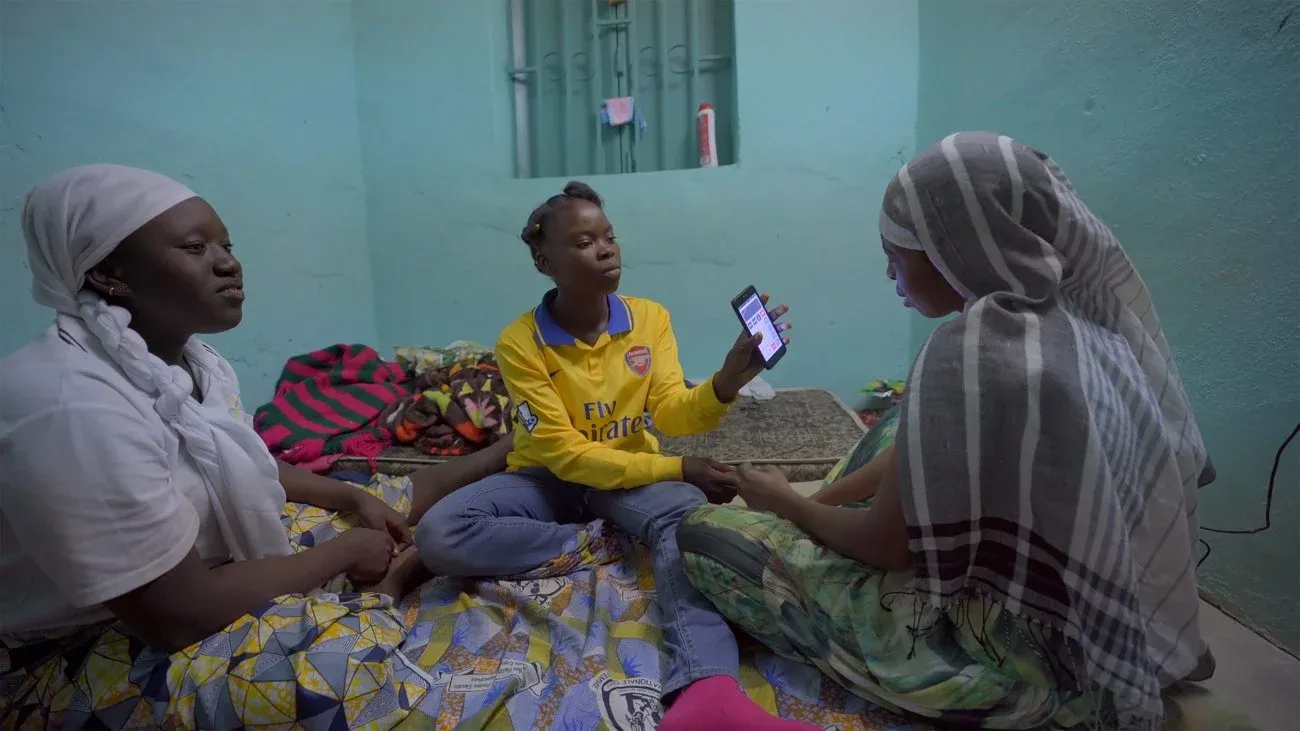
There is the sympathetic house manager, Eric, who at times goes into preacher mode and instructs the inhabitants not to have unrealistic dreams at the peril of what they already have closer to their homes. However, their final destination Europe is hardly mentioned during the movie, almost a silent presence in the backdrop.
The distance between the director and the montage of sights and sounds that unfold during the movie allows the viewers to form their own opinion about migration.
Most people who take up the treacherous journey leave their homes with the well wishes and the final dregs material wealth of their families to arrive in Europe as a panacea for all ills. Even when things are in a deadlock, they are unable to return to their countries as they have nothing to return to.
This hauntingly atmospheric and poetic cinematic masterpiece won the coveted CPH: DOX Award at the Copenhagen International Documentary Film Festival. It triggers the conversation on various aspects of migration, not least the human element, which is largely ignored.
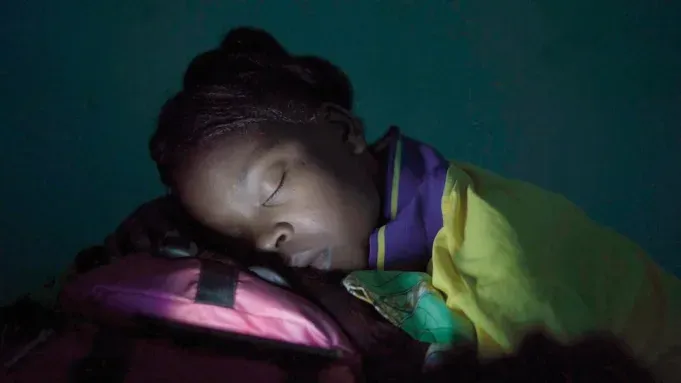
After the double screening, the audience was treated to a thought-provoking Q&A session featuring the creator of Dear Home Office along with Dr Nariman Massoumi from the University of Bristol and Alice Cutler from Bristol Refugees Rights. They further explored the themes discussed in both movies with contributions from the audience members.
Neither of these films at the Afrika Eye Festival were meant to provide all the answers surrounding immigration, especially through the North Africa route. They are devoid of political commentary, as most feature-length documentary films tend to do. What they successfully do is trigger an honest conversation surrounding migration and depict the human element of this ordeal.
In The Last Shelter especially, the hazy montage is skillfully infused with long passages of silence, which at times is deafening. The viewer is in a prime position to start an internal dialogue and weigh in all factors at play.
Immigration has been one emotive issue which opportunistic politicians exploit to shift the focus away from their incompetence. It was no coincidence that the Summer of Discontent in British politics in 2022 saw an unprecedented level of xenophobic rhetoric which was a throwback to the "Rivers of blood" speech of Enoch Powell. The overall ambience of the event provided a sense of awakening regarding the realities surrounding migration and expose the real culprits surrounding it.
Featured Image: Jide Akinleminu for No-U Turn (2020), courtesy of InfoMigrants
Can you think of any films that shed light on migration?

